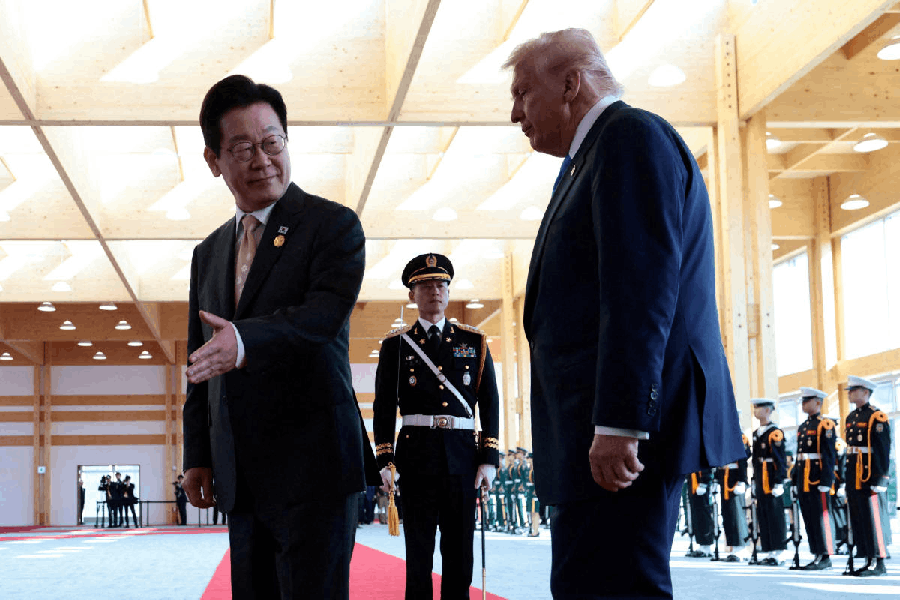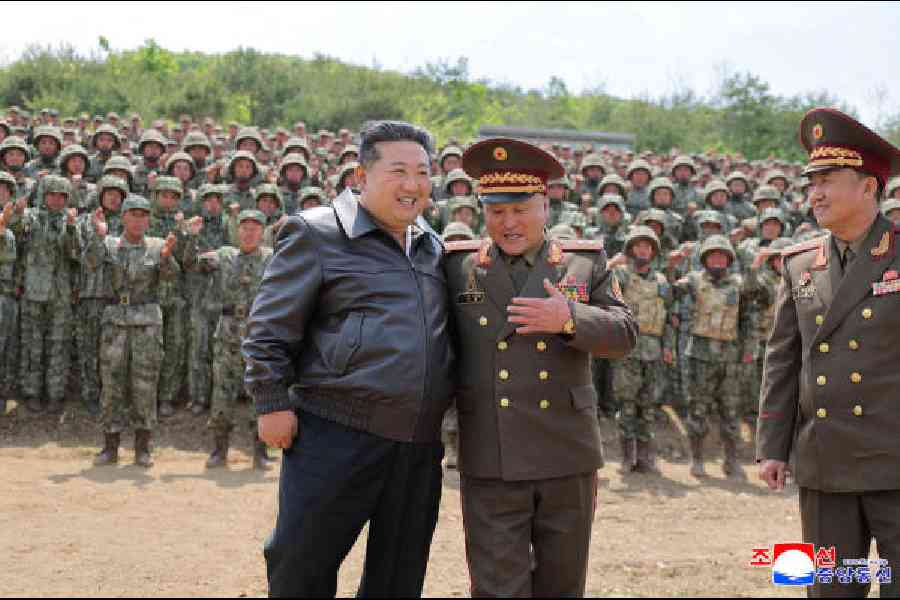South Korea wants to receive enriched uranium from the United States to use as fuel for a nuclear-powered submarine and intends to build the vessel at home, a South Korean presidential official said on Friday.
President Lee Jae Myung told US President Donald Trump during summit talks last week that South Korea would build the submarine domestically, while asking Trump for help on the fuel, the official said.
Washington has approved Seoul's use of nuclear fuel for the submarine, the official said.
Under the current nuclear agreement between the countries, South Korea is not allowed reprocess spent nuclear fuel, or to enrich uranium for military purposes, even though South Korea possesses nuclear reactors to generate power.
Lee's position on building the submarine in South Korea appears at odds with Trump's recent comments on social media.
Trump wrote on his Truth Social platform last week that he had given approval for Seoul to build a nuclear-powered submarine and that it would be built at a South Korean-owned shipyard in Philadelphia.
His comments have prompted a vigorous debate in South Korea over the feasibility of making it at the Hanwha Philly Shipyard and prompted calls by lawmakers for it to be built at home.
Asked about South Korean officials' comments suggesting that the submarine might be built there rather than in the United States, a White House spokeswoman on Thursday referred back to Trump’s comment that it would be built "in the Philadelphia Shipyards, right here in the good ol’ U.S.A."
Meanwhile, South Korea and the U.S. are working on a joint fact sheet that contains details of their recently agreed deal on a $350 billion investment package in exchange for lower tariffs and on security issues such as modernising the alliance.
The fact sheet is taking longer to finalise because relevant U.S. ministries are still giving feedback and there continue to be adjustments on the wording, the official said.
Still, he said there were no differing views between Seoul and Washington on their tariff agreement.
"In security areas, topics that are being discussed are truly mega themes. These are issues we've pursued for decades but haven't been successful in achieving," the official said, referring to issues around nuclear-powered submarines among others.
"Because negotiations are on such weighty issues, there is sensitivity around wording adjustments, which is why I believe things are difficult right up until the very end," he added.











